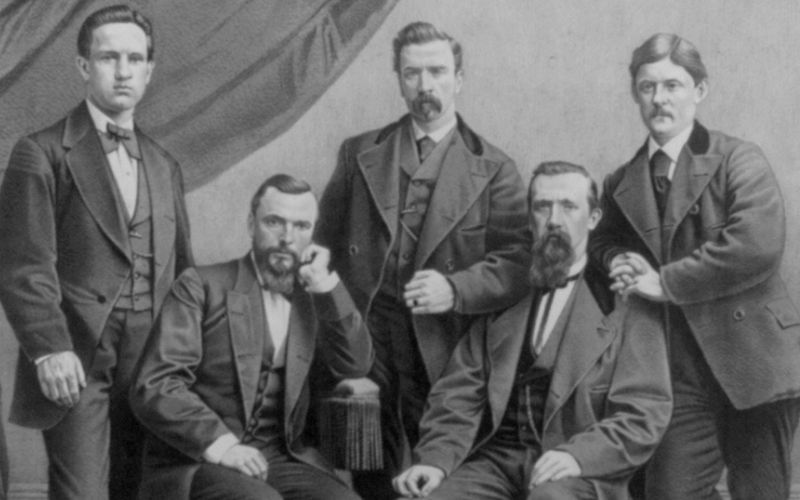Cork native, Dublin resident Gavin Sheridan is putting his considerable energy behind a new journalism for the new media, digital media era. Employing evolving techniques of data-driven journalism, process journalism and computer assisted reporting, he’s using digital technology and Ireland’s Freedom of Information (FOI) laws to nudge the Irish government towards transparency, accountability and openness.
He’s found some of the most tantalizing information at the granular level of government expense reports. “I can see the expense claims, the receipts--I can see this guy spent 400 euros on hiring a hat for his wife to go to the races in England,” he said of John O’Donoghue, the former Speaker of Ireland's Parliament who resigned in 2009 after an expenses scandal related when he was Minister of Arts, Sport and Tourism.
Gavin and I met in New York at the recent Personal Democracy Forum, an annual two-day conference that explores the convergence of digital media with democracy, government and politics. I had responded to a tweet (sorry, I know The New York Times just banned the use of that word) of his and that digital meeting led us to met in person, when I learned how on his own time and largely his own dime, Sheridan has been using FOI to accumulate, digitize and disseminate a database of, until now, hidden government information.
A blogger since 2002 (www.gavinsblog.com), and a former Irish Examiner staffer, Sheridan graduated in 2008 with a degree in history and politics from University College Cork. Currently he’s working for www.Storyful.com, a news site I mentioned in my previous Irish Media Nation blogpost, being developed by Mark Little--until recently an anchor for RTE’s Prime Time--and former CNN social media innovator David Clinch.
A year and a half ago, Sheridan had a pint of Beamish with John Handelaar, an Englishman living in Cork who was familiar with www.TheyWorkForYou.com, a site created to press for transparency in the British Parliament. Using the available API (Application Programming Interface) from the British site, Handelaar led the development of www.KildareStreet.com, as a tool for opening to public scrutiny the actions, records and spending at the most notable address on Dublin’s Kildare Street, the Irish Oireachtas (parliament).
“We see the site as the go-to place for the citizen who wants to see what’s going-on in his parliament,” Sheridan said of the site currently in a beta iteration. “The goal is that you’ll be able to type in your address and then be told this is your constituency, this is how big it is, here is who your local representatives are. Then you’ll be able to click into each representative, see how often he speaks in parliament, here’s what he talks about, here’s what his expense claims are, here’s what his salary is, here’s all the donations he’s ever received--all so you can understand who this guy is, what he does and how it affects you.”
In September he started www.TheStory.ie, a chronicle of his FOI requests to diverse branches of the Irish government and a growing public database of government records. On the site is this mission statement:
The Story is dedicated to sharing documents, combing and combining data and promoting transparency in public life: an experiment in journalism and crowdsourcing hoping to shed light on the government. If you’re spending the Irish taxpayers’ money, you’re on the radar.
“The site was really set up as an experiment to see how you would play with data driven journalism and process journalism,” Sheridan said in rapid sentence bursts. “I realized through FOI I could get government databases. The first ones I went after were from the Department of Sports and Tourism. That request was refused but on appeal we were able to get the database. With the settlement of that case from the Information Ministry, I got the leeway to go to other departments and say, I’d like your expense database, too.”
While accumulating data, he’s mastering the FOI process, finding helpful clues even when he’s refused information. “Over time, you begin to form a picture of how things work,” he said.
Sheridan and journalist Mark Coughlan, his partner at The Story, scan and publish every document received, and make the information searchable by passing all documents, spreadsheets and PDFs through a sophisticated OCR (Optical Character Recognition) program.
Other Irish journalists are recognizing the site’s value.
“A lot of journalist read the blog now, a lot of journalists are using our information in their stories—which is fine by us. We want to lead by example,” he said. “We’ve noticed other journalists now when they run a story with FOI information will publish the documents themselves on their blogs, which we think is great. Original documents resonate with the public.”
The public has responded with enough modest donations to The Story to cover the considerable fees associated with multiple FOI filings.
I asked Sheridan if he saw a uniquely Irish context in what he’s doing.
“I think what we’re doing can be replicated in any country but there is sense it’s something that’s ripe to be done in Ireland. Because we have such problems with opaqueness in the government for the last number of years, it resonates with people,” the energetic young digital journalist replied. “I guess the Irish context is that people have seen the country go into recession, become more insolvent, and people say that this is one avenue for fixing the problem—publish the data.”




Comments